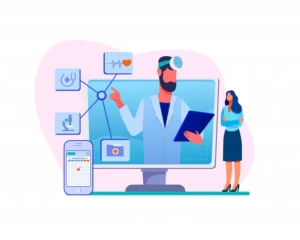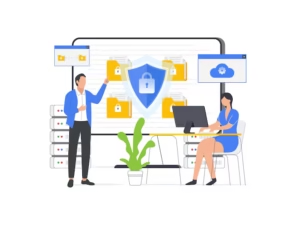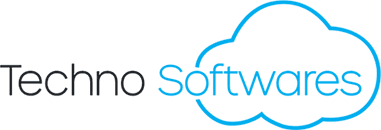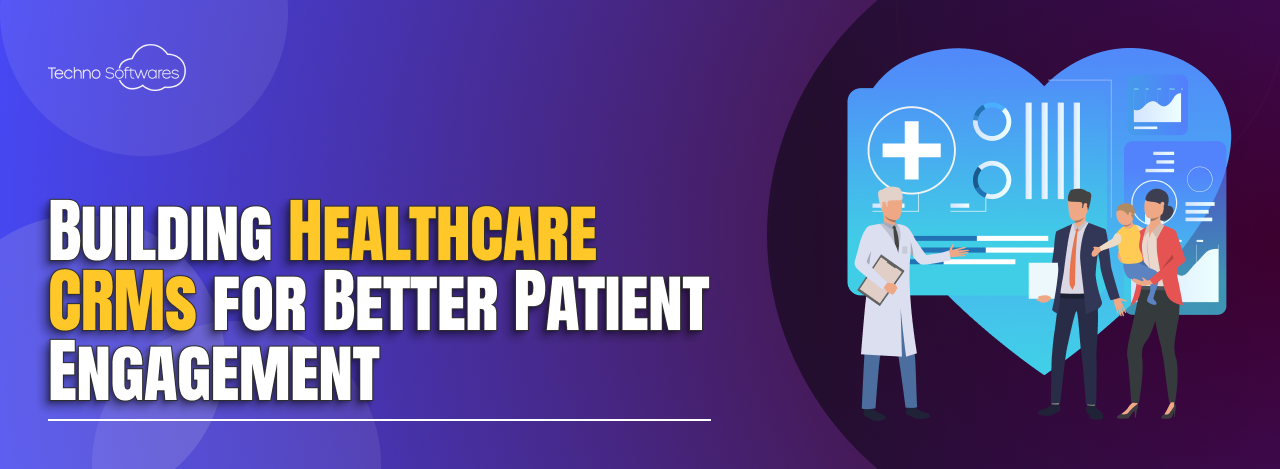How Techno Softwares Builds Healthcare CRM Systems for Better Patient Engagement
In the ever-evolving landscape of healthcare, patient engagement has emerged as a cornerstone of effective treatment and care. We recognize that when patients are actively involved in their healthcare journey, they tend to experience better health outcomes. Engaged patients are more likely to adhere to treatment plans, attend follow-up appointments, and communicate openly with their healthcare providers.
This active participation not only fosters a sense of ownership over one’s health but also cultivates a collaborative relationship between patients and providers, ultimately leading to improved satisfaction and trust. Moreover, patient engagement is not merely a buzzword; it is a critical component of modern healthcare strategies. As we navigate through an era marked by increasing healthcare costs and complex medical conditions, engaging patients becomes essential for optimizing resources and enhancing the quality of care.
By empowering patients with knowledge and tools to manage their health, we can reduce hospital readmissions, lower healthcare costs, and improve overall population health. The importance of patient engagement cannot be overstated; it is a vital element that shapes the future of healthcare delivery.
Key Takeaways
- Patient engagement is crucial for improving healthcare outcomes and patient satisfaction.
- CRM systems play a key role in enhancing patient engagement by providing personalized communication and care.
- Customizing CRM systems for healthcare industry needs ensures that they address specific challenges and requirements.
- Technology can be leveraged to facilitate better communication between patients and providers, leading to improved engagement.
- Data analytics can be integrated into CRM systems to provide personalized patient care and improve outcomes.
The Role of CRM Systems in Improving Patient Engagement
Revolutionizing Healthcare with CRM Systems
Customer Relationship Management (CRM) systems have transformed various industries, and the healthcare sector is no exception. These systems are powerful tools that can significantly enhance patient engagement by streamlining communication and fostering relationships between patients and healthcare providers. By collecting, analyzing, and utilizing patient data effectively, CRM systems enable personalized interactions that cater to individual needs.
Building Trust and Loyalty through Personalized Interactions
By leveraging CRM technology, healthcare organizations can ensure that patients feel valued and understood, which is crucial for building trust and loyalty. CRM systems facilitate proactive outreach to patients, reminding them of appointments, follow-ups, and preventive care measures. This proactive approach not only keeps patients informed but also encourages them to take an active role in their health management.
Enhancing Patient Engagement through Automation and Personalization
The integration of CRM systems into healthcare practices represents a shift towards a more patient-centered approach, where the focus is on building lasting relationships rather than merely transactional interactions. By utilizing automated reminders and personalized communication strategies, healthcare organizations can enhance patient engagement levels significantly. This approach enables healthcare providers to deliver more effective care and improve patient outcomes.
Customizing CRM Systems for Healthcare Industry Needs

While CRM systems have proven effective across various sectors, customizing these systems for the unique needs of the healthcare industry is essential for maximizing their potential. We understand that healthcare is not a one-size-fits-all environment; it encompasses diverse specialties, patient demographics, and regulatory requirements. Therefore, tailoring CRM solutions to address these specific needs is crucial for ensuring their effectiveness in enhancing patient engagement.
Customization can take many forms, from incorporating specialized workflows that align with clinical practices to integrating features that comply with healthcare regulations such as HIPABy working closely with healthcare providers, we can develop CRM systems that not only streamline administrative tasks but also enhance clinical workflows. This tailored approach allows us to create a seamless experience for both patients and providers, ultimately leading to improved engagement and satisfaction.
Leveraging Technology to Enhance Patient-Provider Communication
In today’s digital age, technology plays a pivotal role in facilitating communication between patients and providers. We recognize that effective communication is fundamental to patient engagement; it fosters transparency, builds trust, and encourages collaboration in care decisions. By leveraging various technological tools such as telehealth platforms, patient portals, and mobile applications, we can create multiple channels for communication that cater to diverse patient preferences.
Telehealth services have gained immense popularity, especially in recent years, as they provide patients with convenient access to healthcare professionals from the comfort of their homes. This accessibility not only enhances patient engagement but also reduces barriers to care, particularly for those with mobility issues or those living in remote areas. Additionally, patient portals empower individuals to access their health information, schedule appointments, and communicate directly with their providers.
By embracing these technological advancements, we can foster a culture of open communication that encourages patients to take an active role in their health management.
Integrating Data Analytics for Personalized Patient Care
Data analytics has become an invaluable asset in the healthcare sector, enabling us to deliver personalized care that meets the unique needs of each patient. By harnessing the power of data analytics within CRM systems, we can gain insights into patient behaviors, preferences, and health trends. This information allows us to tailor our engagement strategies effectively and provide targeted interventions that resonate with individual patients.
For instance, predictive analytics can help us identify patients at risk of developing chronic conditions or those who may require additional support in managing their health. By proactively reaching out to these individuals with personalized care plans or educational resources, we can enhance their engagement and improve health outcomes. Furthermore, data analytics enables us to track the effectiveness of our engagement strategies over time, allowing us to refine our approaches based on real-time feedback and outcomes.
Ensuring Security and Compliance in Healthcare CRM Systems


Protecting Sensitive Patient Information
As we adopt CRM systems in healthcare, it is crucial that we prioritize security and compliance. The sensitive nature of health information demands robust security measures to protect patient data from breaches or unauthorized access. We understand that maintaining patient trust hinges on our ability to safeguard their information effectively.
Compliance with Regulations is Key
Compliance with regulations such as HIPAA is non-negotiable in the healthcare industry. Therefore, when implementing CRM systems, we must ensure that they adhere to these regulations by incorporating features such as data encryption, access controls, and audit trails.
Creating a Safe Environment for Patient Engagement
By prioritizing security and compliance in our CRM strategies, we can create a safe environment for patient engagement while minimizing risks associated with data breaches.
Case Studies: Successful Implementation of Healthcare CRM Systems
To illustrate the transformative impact of CRM systems on patient engagement, we can look at several case studies showcasing successful implementations within the healthcare sector. One notable example involves a large hospital network that integrated a comprehensive CRM system into its operations. By doing so, they were able to streamline appointment scheduling, enhance communication with patients through automated reminders, and provide personalized follow-up care based on individual health needs.
As a result, they witnessed a significant increase in patient satisfaction scores and a reduction in missed appointments. Another compelling case study involves a primary care practice that utilized a CRM system to track patient interactions and preferences. By analyzing this data, they were able to identify trends in patient behavior and tailor their outreach efforts accordingly.
For instance, they implemented targeted educational campaigns for patients with chronic conditions, resulting in improved adherence to treatment plans and better overall health outcomes. These case studies highlight the tangible benefits of CRM systems in enhancing patient engagement and demonstrate how tailored solutions can lead to meaningful improvements in care delivery.
The Future of Healthcare CRM Systems: Innovations and Trends
As we look ahead to the future of healthcare CRM systems, it is clear that innovation will continue to drive advancements in patient engagement strategies. Emerging technologies such as artificial intelligence (AI) and machine learning are poised to revolutionize how we interact with patients and analyze data. We anticipate that AI-powered chatbots will become increasingly prevalent in providing immediate responses to patient inquiries, enhancing accessibility while freeing up valuable time for healthcare providers.
Additionally, the integration of wearable devices into CRM systems presents exciting opportunities for real-time monitoring of patient health metrics. By collecting data from these devices, we can gain deeper insights into patient behaviors and preferences, allowing us to tailor our engagement strategies even further. As we embrace these innovations and trends, we remain committed to fostering meaningful connections between patients and providers while continuously improving the quality of care delivered across the healthcare landscape.
In conclusion, the importance of patient engagement in healthcare cannot be overstated. By leveraging CRM systems tailored for the unique needs of the industry, enhancing communication through technology, integrating data analytics for personalized care, ensuring security and compliance, learning from successful case studies, and embracing future innovations, we can create a more engaged patient population that ultimately leads to better health outcomes for all.
If you’re interested in how technology can enhance customer relations and operational efficiency, you might find it useful to explore how Techno Softwares approaches software development in different sectors. For instance, in the healthcare industry, they focus on creating CRM systems to improve patient engagement. Similarly, in the e-commerce sector, they provide insights on integrating external web applications with platforms like Shopify. To learn more about accessing Shopify API from external web applications, which can be crucial for enhancing e-commerce functionalities and customer interactions, check out their detailed guide here.
FAQs
What is a Healthcare CRM system?
A Healthcare CRM system is a customer relationship management platform specifically designed for the healthcare industry. It helps healthcare organizations manage patient relationships, improve patient engagement, and streamline communication and processes.
How can a Healthcare CRM system improve patient engagement?
A Healthcare CRM system can improve patient engagement by providing personalized communication, appointment reminders, health education materials, and easy access to medical records. It can also facilitate feedback collection and follow-up care, leading to better patient satisfaction and loyalty.
What are the key features of a Healthcare CRM system?
Key features of a Healthcare CRM system include patient database management, appointment scheduling, communication tools (such as email and SMS), patient education resources, feedback collection, and analytics for tracking patient engagement and satisfaction.
How does Techno Softwares build Healthcare CRM systems for better patient engagement?
Techno Softwares builds Healthcare CRM systems by leveraging advanced technology and industry-specific expertise. They focus on creating user-friendly interfaces, personalized communication tools, and robust data management capabilities to enhance patient engagement and improve overall healthcare experiences.





